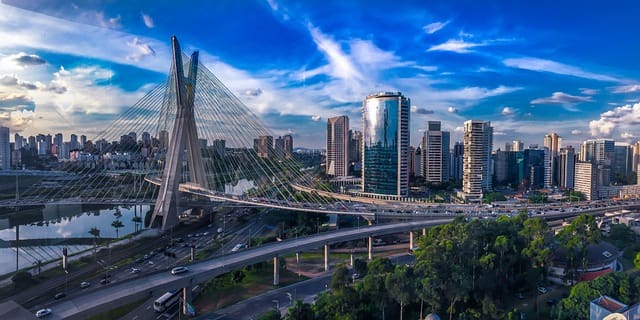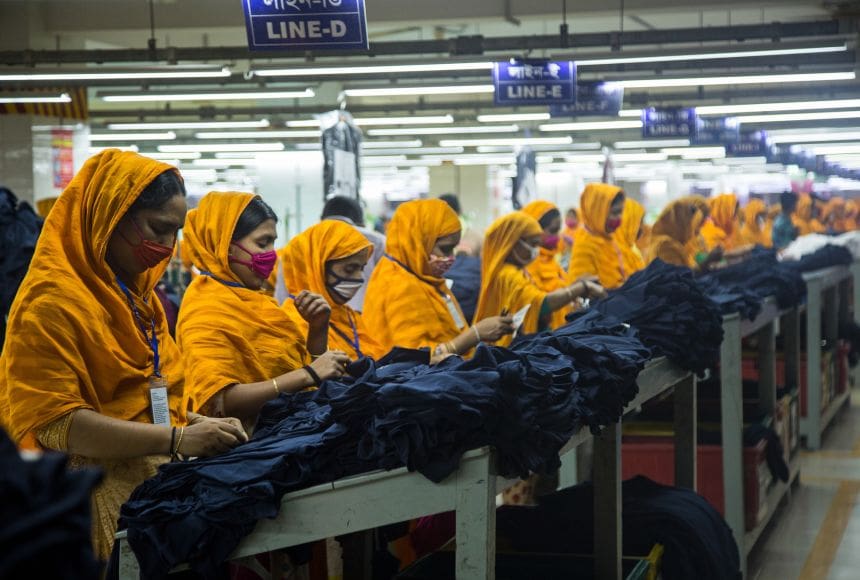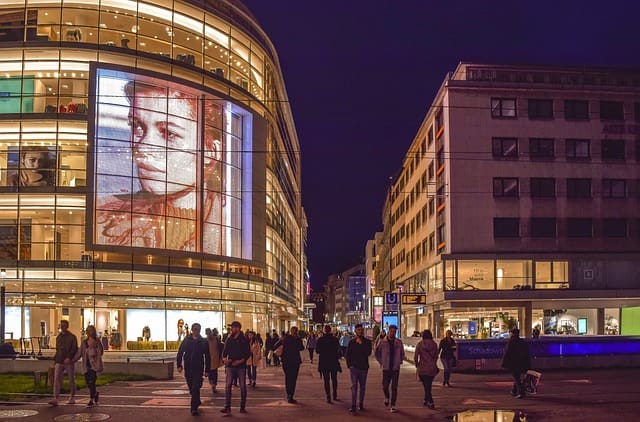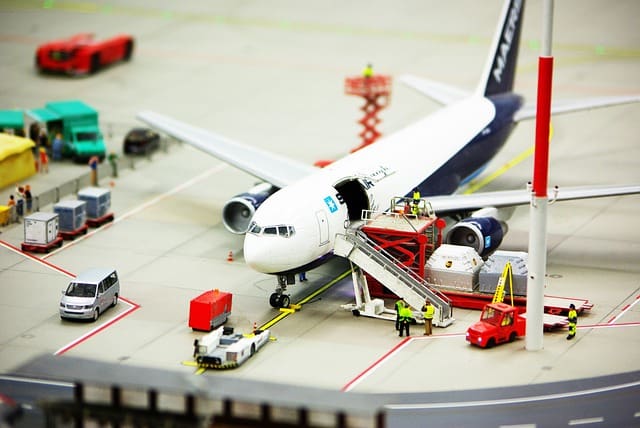Business
8 Ways Economic Integration Is Transforming the World


The impact of economic integration on the global landscape is undeniable, with far-reaching implications for trade, investment, and economic policy.
As the world becomes increasingly interconnected, the dynamics of international trade and commerce are experiencing a profound transformation. From the rise of multinational corporations to the formation of regional blocs, the ways in which economies interact and influence one another are undergoing significant shifts.
These changes not only affect businesses and governments but also have profound implications for individuals and communities around the world.
Understanding the multifaceted nature of economic integration is crucial for comprehending the complexities of the modern global economy and its potential implications for the future.
Key Takeaways
- Trade agreements and market access play a crucial role in driving economic growth and development by promoting foreign direct investment (FDI) flows and facilitating the transfer of knowledge and technology.
- Tariff reduction leads to increased trade flows, improved market access for businesses, and encourages competition, innovation, and consumer choice.
- Increased competition in the global market drives countries to innovate, improve products and services, and benefits consumers through price wars.
- Regional blocs, through reducing trade barriers among member nations and enhancing market access, contribute to economic growth within their respective regions and foster cooperation among member countries.
Trade Agreements
The proliferation of trade agreements has significantly reshaped the global economic landscape, fostering interconnectedness and facilitating the movement of goods and services across borders. These agreements have played a pivotal role in promoting economic freedom and prosperity. According to the World Trade Organization, there are currently 278 regional trade agreements in force worldwide. These agreements have substantially reduced trade barriers, leading to an increase in global trade volume. For instance, the North American Free Trade Agreement (NAFTA) led to a tripling of trade among the United States, Canada, and Mexico within two decades of its implementation.


Trade agreements have also been instrumental in driving foreign direct investment (FDI) flows. The United Nations Conference on Trade and Development reports that countries participating in trade agreements have experienced higher levels of FDI compared to those outside such pacts. Furthermore, these agreements have facilitated the transfer of knowledge and technology, contributing to overall economic growth.
In essence, trade agreements have been pivotal in fostering economic freedom and global interconnectedness, ultimately contributing to the prosperity of nations.
Market Access
Market access plays a pivotal role in economic integration, offering numerous benefits such as expanded trade opportunities and increased market competition. Tariff reduction, a key aspect of market access, promotes cost efficiency and price competitiveness, benefiting both consumers and businesses.
This facilitates the flow of goods and services across borders, fostering economic growth and development.
Trade Benefits
Facilitating access to international markets has become a critical factor in driving economic growth and development for countries around the world. This has led to several trade benefits, including:


- Increased Market Size: Access to international markets allows businesses to reach a larger customer base, leading to expanded sales and revenue opportunities.
- Diversification of Products: By tapping into international markets, countries can diversify their exports, reducing reliance on a single industry or market.
- Efficiency Gains: Access to international markets often leads to increased competition, which can drive efficiency and innovation within domestic industries.
- Resource Optimization: International trade allows countries to specialize in the production of goods and services where they have a comparative advantage, leading to resource optimization and higher overall productivity.
These trade benefits not only drive economic growth but also foster global cooperation and interconnectedness.
Tariff Reduction
With the reduction of tariffs, countries can enhance their market access and foster greater economic integration on a global scale. Tariff reduction plays a pivotal role in dismantling trade barriers and promoting economic freedom.
According to the World Trade Organization, the average global tariff has declined significantly over the past few decades, from 6.3% in 1994 to 2.5% in 2019. This reduction has led to increased trade flows and improved market access for businesses, ultimately driving economic growth and prosperity.
Furthermore, tariff reduction encourages competition, innovation, and consumer choice, as it enables countries to specialize in their comparative advantage sectors. As a result, consumers benefit from access to a wider variety of goods and services at competitive prices, while businesses can tap into new markets, driving global economic transformation.
Increased Competition
The reduction of tariffs has not only facilitated greater market access but has also intensified competition among countries, leading to a transformative impact on the global economy. This increased competition has brought about several significant changes:


- Price Wars: Countries are striving to offer the most competitive prices, leading to price wars that benefit consumers but pose challenges for businesses.
- Innovation Drive: Intensified competition has driven countries to innovate and improve their products and services to gain a competitive edge in the global market.
- Market Expansion: Countries are seeking to expand their market reach, leading to strategic alliances and partnerships to access new markets and customers.
- Quality Enhancement: To stay ahead in the competitive landscape, countries are focusing on enhancing the quality of their goods and services, ultimately benefiting consumers worldwide.
This heightened level of competition is reshaping the global economic landscape, fostering innovation, and ultimately benefiting consumers through improved products, services, and pricing.
Foreign Investment
Foreign investment has become a vital driver of economic growth and development in an increasingly interconnected global economy. In today’s world, foreign direct investment (FDI) plays a crucial role in shaping the economic landscape of countries. The flow of FDI has not only spurred capital accumulation but also facilitated the transfer of technology, management expertise, and best practices. According to the United Nations Conference on Trade and Development (UNCTAD), global FDI flows rose by 5% to $1.3 trillion in 2020, signaling the enduring appeal of cross-border investment despite the challenges posed by the COVID-19 pandemic. This underscores the resilience and adaptability of the global investment landscape.
Furthermore, foreign investment has the potential to foster job creation, improve productivity, and stimulate innovation in host economies. It can also lead to the establishment of stronger trade relationships and enhanced market access. However, it is crucial for countries to strike a balance between reaping the benefits of foreign investment and safeguarding their national interests. Effective governance frameworks and policies that promote transparency and accountability are essential to harness the opportunities presented by foreign investment while mitigating potential risks.
As economic integration continues to shape the world, foreign investment will remain a key catalyst for driving prosperity and progress on a global scale.
Regional Blocs
Regional blocs are significant entities in the global economy, influencing trade patterns and economic policies in their respective regions. They have a profound impact on the economic landscape, shaping market dynamics and fostering cooperation among member countries.


Here are four key ways regional blocs are transforming the world:
- Trade Facilitation: Regional blocs play a pivotal role in reducing trade barriers among member nations, promoting seamless trade flows, and enhancing market access for businesses within the bloc.
- Policy Coordination: These blocs facilitate policy coordination among member countries, leading to greater harmonization of regulations and standards, which can streamline cross-border trade and investment.
- Economic Growth: By promoting intra-regional trade and investment, regional blocs contribute to economic growth within their respective areas, fostering prosperity and development.
- Global Influence: Regional blocs hold significant influence in global trade negotiations and geopolitical affairs, often presenting a united front to address international economic challenges and opportunities.
The influence of regional blocs is reshaping the global economic landscape, driving increased interconnectedness and collaboration among nations striving for economic freedom and prosperity.
Tariff Reduction
Tariff reduction within regional blocs is a critical component of trade facilitation, enabling member nations to enhance market access and promote economic growth through the elimination or reduction of import duties on goods traded within the bloc.
The reduction of tariffs leads to increased trade flows, as it lowers the cost of imported goods and encourages consumption. According to the World Trade Organization, tariff reductions have been instrumental in driving global economic growth and lifting millions out of poverty.
In addition to fostering economic prosperity, tariff reductions also promote cooperation and stability among member nations, as they create a mutually beneficial environment for trade. The European Union serves as a prime example, where tariff reductions have significantly contributed to the economic integration of its member states, leading to increased investment and job creation.


Furthermore, tariff reductions within regional blocs encourage foreign direct investment, as reduced trade barriers make member nations more attractive for international businesses seeking market access. This, in turn, fosters economic development and prosperity within the bloc.
Global Supply Chain
The globalization of production and distribution networks has led to a fundamental restructuring of the world’s economic landscape, profoundly impacting the dynamics of trade and commerce. This transformation is primarily evident in the evolution of global supply chains, which have become increasingly interconnected and complex.
The following key aspects highlight the current state of global supply chains:
- Interconnectedness: Supply chains now span multiple countries, with raw materials sourced from one region, components manufactured in another, and assembly taking place elsewhere, emphasizing the interconnected nature of modern production.
- Technological Integration: Advanced technologies, including Internet of Things (IoT), Artificial Intelligence (AI), and blockchain, are being seamlessly integrated into supply chains, enhancing efficiency, transparency, and traceability.
- Resilience and Risk Management: Recent disruptions, such as the COVID-19 pandemic, have underscored the importance of building resilient supply chains capable of managing unforeseen risks and maintaining continuity of operations.
- Sustainability and Ethics: There is a growing emphasis on sustainable and ethical practices within global supply chains, with consumers demanding transparency and responsible sourcing from companies, thus driving a shift towards environmentally conscious and socially responsible supply chain management.
The current state of global supply chains reflects a dynamic and interconnected system that continues to shape the global economy, emphasizing the need for adaptability and innovation in an ever-evolving landscape.
Multinational Corporations
Amidst the ongoing process of economic integration, multinational corporations have become pivotal actors in shaping the global business landscape through their strategic expansion and economic influence. According to the United Nations Conference on Trade and Development (UNCTAD), multinational corporations now control nearly 80% of global trade and 10% of the world’s GDP. This underscores their immense impact on the global economy.


These corporations operate in multiple countries, leveraging economies of scale and scope, and often have revenues that surpass the GDP of many nations. Their presence has led to the transfer of technology, management practices, and skills across borders, thereby contributing to the diffusion of knowledge and capabilities worldwide.
However, their influence also raises concerns about market dominance, labor standards, and environmental practices. As they navigate different regulatory environments, taxation systems, and cultural nuances, multinational corporations are redefining the dynamics of globalization.
Their ability to drive innovation, create jobs, and spur economic growth is undeniable, yet the need for responsible corporate conduct within this framework is increasingly paramount.
Economic Policy
The expansion and economic influence of multinational corporations have significantly shaped global business practices, prompting a close examination of economic policy within the context of international trade and investment. In this era of economic integration, the following aspects underscore the transformative impact of economic policy:
- Trade Liberalization: Economic integration has led to the removal of trade barriers, fostering increased international trade. As countries open up their markets, economic policies are evolving to facilitate smoother cross-border transactions.
- Harmonization of Regulations: Economic integration necessitates aligning diverse national regulations and standards. This process requires the formulation of economic policies that promote regulatory coherence and convergence, facilitating seamless economic interaction across borders.
- Investment Promotion: Economic policy reforms often focus on creating a conducive environment for foreign direct investment. This includes measures to improve the ease of doing business, protect investor rights, and provide incentives for investment, thereby bolstering economic integration.
- Macroeconomic Coordination: With economic integration, nations are increasingly coordinating their macroeconomic policies to maintain stability and foster sustainable growth across interconnected economies, ensuring the freedom of economic activities within a stable framework.
As economic integration continues to advance, the evolution of economic policy plays a pivotal role in shaping the global economic landscape, empowering nations to capitalize on the benefits of interconnected markets while safeguarding their economic freedom.


Frequently Asked Questions
How Do Trade Agreements Impact the Environment and Sustainability Efforts in Participating Countries?
Trade agreements can significantly impact the environment and sustainability efforts in participating countries. They can influence regulations, resource allocation, and technological innovation. Understanding these effects is crucial for creating trade policies that align with environmental and sustainability goals.
What Strategies Can Countries Use to Ensure Fair Market Access for Small Businesses and Startups in the Face of Economic Integration?
To ensure fair market access for small businesses and startups amidst economic integration, countries can implement policies such as streamlined regulatory processes, access to finance, and targeted support programs. These strategies can foster innovation and competition, driving economic growth.
How Does Foreign Investment Influence Income Inequality Within Countries?
Foreign investment can influence income inequality within countries by creating job opportunities, introducing new technologies, and boosting economic growth. However, it can also exacerbate inequality if benefits primarily accrue to the wealthy or foreign investors.
What Are the Potential Social and Cultural Implications of Regional Blocs on Participating Countries?
The potential social and cultural implications of regional blocs on participating countries are extensive, including impacts on national identity, cultural exchange, social cohesion, and political dynamics. These effects are complex and multifaceted, warranting careful consideration.
How Do Tariff Reductions Impact Domestic Industries and Employment Rates in Different Countries?
Tariff reductions can lead to increased competition for domestic industries, potentially impacting employment rates. While some industries may struggle, others may benefit from access to lower-cost imports, leading to a complex and nuanced economic impact.




Hi, I’m Kyle Rivera, a news journalist and blog editor with the Daily Evening News. A TCU alum with a flair for storytelling, I spend my days uncovering impactful stories and my evenings exploring the realms of yoga, cycling, and whimsically bad poetry.
Travel is my escape; I’ve trekked from Tokyo’s neon lights to Iceland’s tranquil vistas. But no journey is complete without Mogli, my Golden Retriever, who’s redefining his breed standards in the most charming ways.
I love connecting with fellow travelers, yogis, cyclists, and anyone who enjoys a laugh at my poetic attempts. If you’re into stories that inspire, travel escapades, or just want to see what Mogli and I are up to, I’d love to hear from you on Instagram or Facebook. Let’s share tales and tips from around the globe!

